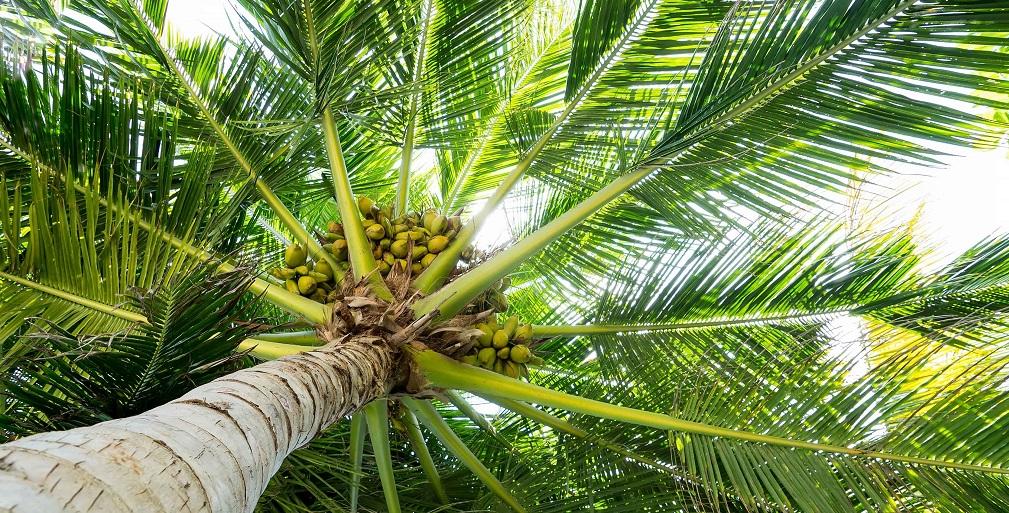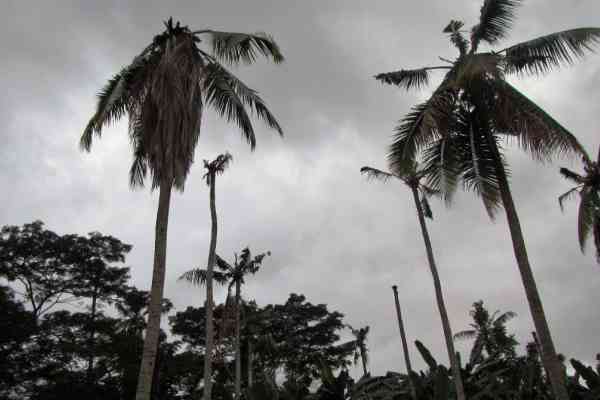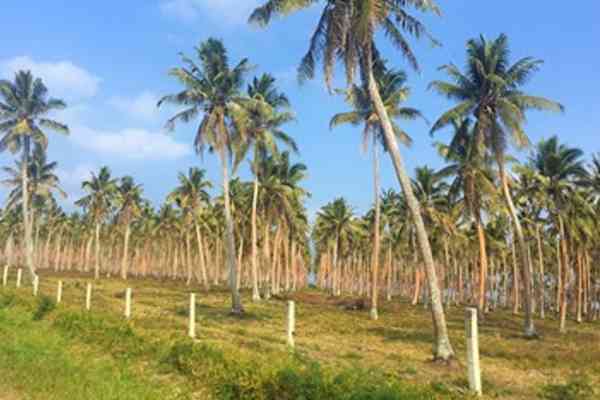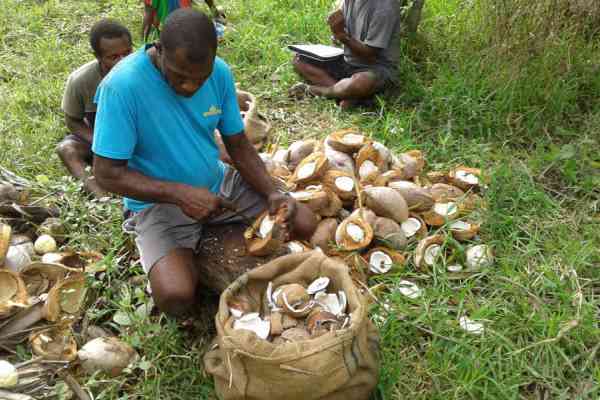(disponible en anglais uniquement)
Protecting the diversity of coconuts in the Pacific islands
Researchers in the Pacific recently travelled to a remote island in Fiji to collect endangered coconut specimens as part of an ACIAR-supported project to conserve the plant’s genetic diversity.
Coconut palms, commonly referred to as the ‘Tree of Life’, play a vital role in Pacific society and are a valuable source of income for many smallholder farmers.
However, the iconic plant is increasingly under threat from pests and diseases spreading through the region, with the livelihoods of many communities at risk due to an over-reliance on the iconic plant for income.
Commencing in 2019, the ACIAR-funded initiative led by the Pacific Community (SPC) has been examining how to protect and bolster the genetic diversity of coconut palms and to ensure rural communities can depend on the ‘Tree of Life’ for future generations.
Stored in the Pacific's Regional Genebank in Fiji, the newly collected samples will form part of a selective breeding program as researchers develop more productive and resistant varieties of coconut to ensure the plant’s sustainability against biosecurity threats and the worsening impacts of climate change.
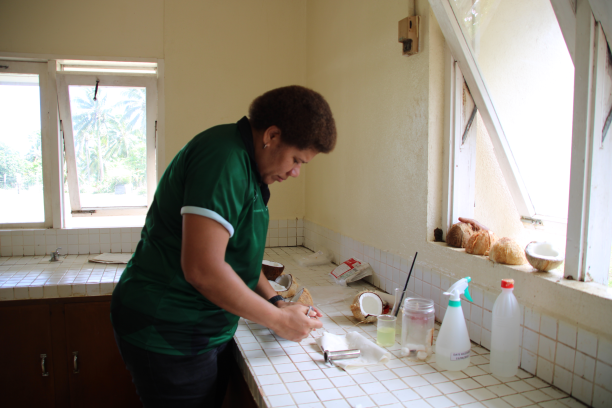
Associate Scientist for Coconut Genetic Resources with SPC Land Resources Division Dr Carmel Pilotti said the resulting diversity from the project could become the cornerstone of regional coordination efforts now and into the future.
'The loss of plant diversity is a real issue in agriculture, and coconuts are no different. The use of tissue culture provides a back-up to field genebanks where most coconut germplasm (living genetic resources) is currently conserved,’ Dr Pilotti said.
‘Coconut embryos must be isolated from mature coconuts to avoid disease and pests and germinated under laboratory conditions. The grown plants are returned to their origins for acclimatisation before being planted in the field'.
Dr Pilotti is leading the sample collection and research efforts involving five Pacific island countries including Fiji, Samoa, PNG, Vanuatu and the Solomon Islands.
ACIAR Research Program Manager for Horticulture, Ms Irene Kernot, said that ensuring the genetic diversity of coconuts is essential to protecting the improving the livelihoods if rural communities throughout the Pacific.
'The focus of the project's activities is to establish a platform for regional coordination of research and development efforts to develop a more robust and viable coconut sector that will respond to national, regional and global market needs,' she added.
Samples collected from the Pacific island countries collaborating on the project will be conserved at the Pacific's Regional Genebank, the Centre for Pacific Crops and Trees (CePaCT), housed at SPC in Fiji.
As part of the project, researchers from CePaCT recently travelled to the garden island of Taveuni in Fiji to collect coconut samples for tissue culture research to be undertaken in collaboration with the University of Queensland in Australia.
The team will also provide guidance and hands-on training to the Ministry of Agriculture officials in the region, empowering them and farmers alike with skills and knowledge to protect their precious resources.
The ACIAR-supported Safeguarding and deploying coconut diversity for improving livelihoods in the Pacific islands project is led by SPC and supported by the University of Queensland and various regional agricultural government ministries in the Pacific.
This story originally appeared on the ACIAR website. It has been reprinted here with permission.
